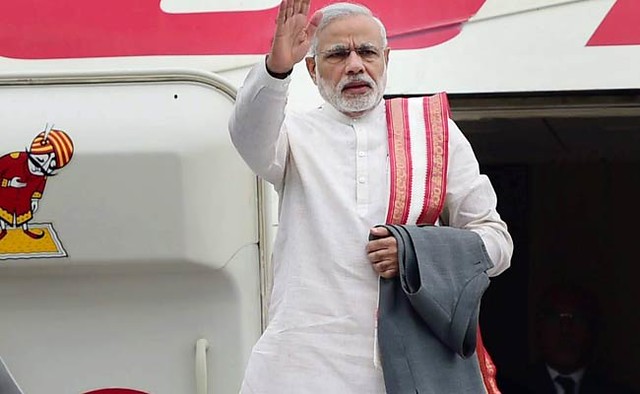Made in India Chips, Social Media Tech Vision
By Asmita - Aug 16, 2025
Prime Minister Narendra Modi aims for India to develop and manufacture semiconductor chips locally by 2025. The initiative seeks to bolster tech self-reliance, create jobs, and position India in the global semiconductor supply chain. Modi also calls for indigenous social media platforms, emphasizing the need for local digital solutions aligned with Indian values. Industry stakeholders express support, recognizing the potential for innovation and economic growth.

Narendra Modi via Flickr
Prime Minister Narendra Modi has set an ambitious goal for India’s burgeoning technology sector: to develop and manufacture “Made in India” semiconductor chips by the end of 2025. This announcement underscores the government’s focus on self-reliance in critical technology infrastructure, a move seen as essential for national security and future economic growth. Speaking at a major event, Modi emphasized that indigenous chip production would not only reduce reliance on foreign suppliers but also open up new opportunities for Indian businesses, researchers, and manufacturers. The initiative, backed by government incentives and partnerships with both domestic and international firms, aims to position India as a significant player in the global semiconductor supply chain.
The push for indigenous chip manufacturing comes at a time when several nations are scrambling for secure and stable sources of semiconductors due to supply chain disruptions and geopolitical tensions. By investing in local fabrication units, research facilities, and skilled labor, the Modi government hopes to transform India into a global technology hub. The plan includes establishing state-of-the-art facilities, training programs in microelectronics, and funding for startup ecosystems focused on hardware innovation. Experts believe these efforts could create thousands of high-skilled jobs and attract significant foreign investment, furthering India’s reputation as a center for technology excellence.
Beyond chip manufacturing, Prime Minister Modi called on Indian entrepreneurs and developers to create indigenous social media platforms and digital technologies. Recognizing the influence and reach of global platforms, he stressed the importance of local solutions that align with Indian values and address unique domestic challenges. Modi’s vision includes developing alternatives to popular messaging, video sharing, and networking platforms, harnessing homegrown talent and resources. The government has pledged regulatory support and seed funding for startups willing to take up this challenge, and the move has been welcomed by several tech incubators and industry bodies. The aim is to foster an ecosystem where innovation flourishes and Indian users have access to safe, scalable, and culturally relevant digital tools.
Industry response to these announcements has been largely positive, with leading figures from the IT, telecom, and electronics sectors expressing their support. Many experts view the call for indigenous technology as timely, given rising concerns over digital sovereignty, data privacy, and protection from cyber threats. While challenges remain, such as access to advanced manufacturing technology and global competition, India’s large market, skilled workforce, and proactive policy environment are seen as key advantages. The next few years are expected to witness significant developments in chip fabrication capacity and a surge of activity in the digital platform space, setting the stage for India to assert itself as a leader in innovation and self-reliance.


